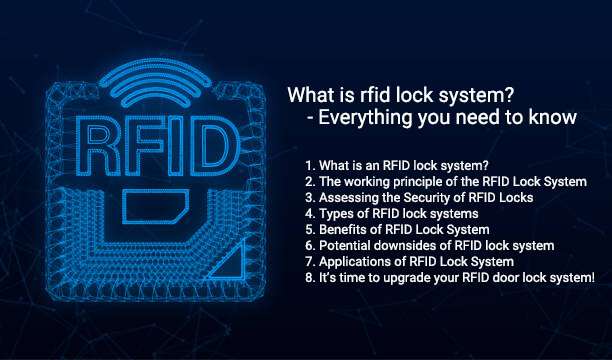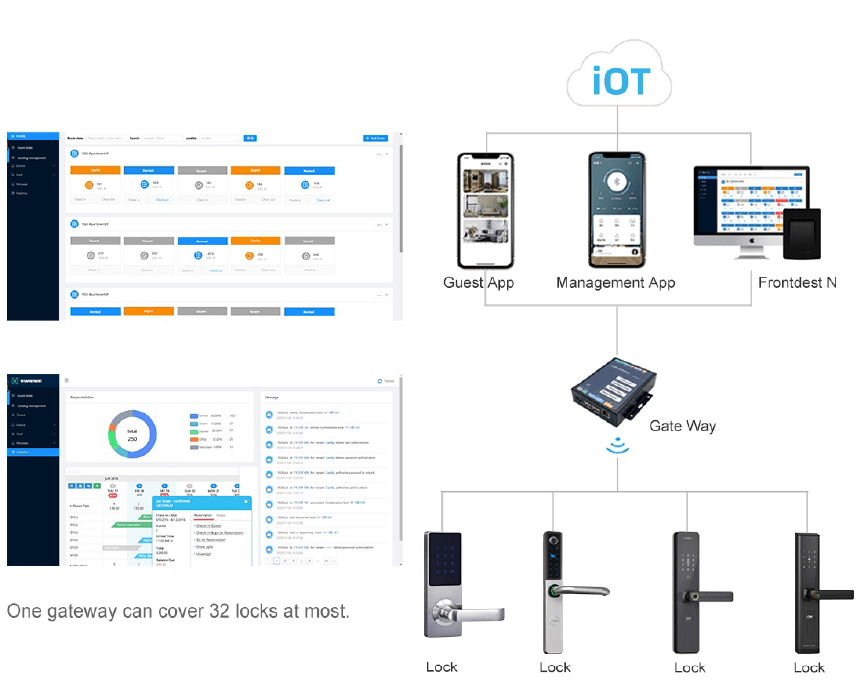One of the most common applications of RFID locks is in the hotel industry, where they are used to provide secure access control to guest rooms and other hotel amenities. In this article, we’ll provide a comprehensive introduction to RFID lock systems in hotels, including what is RFID lock system, how they work, the different types available, types of lock hotels use, application scenarios, and more.
RFID technology is short for Radio Frequency Identification, which is a wireless communication technology that uses an electromagnetic field to transfer data between RFID tags or cards and RFID readers. The identification process requires no human intervention and can work in various harsh environments.
RFID technology can identify high-speed moving objects and multiple tags simultaneously, making it fast and convenient to operate. It emerged during World War II as the successor to traditional barcode technology and is also known as “electronic tags” or “RF tags.”
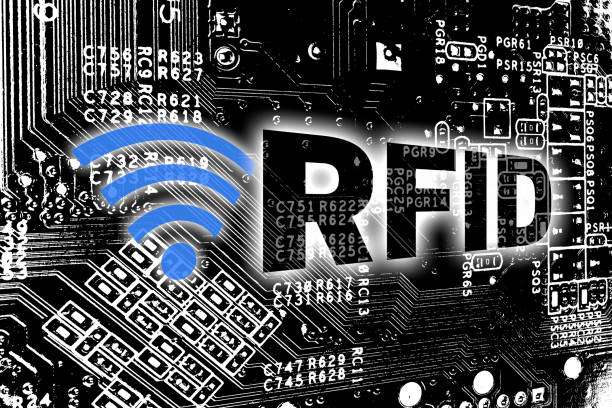
Defining RFID Locks
RFID locks are a type of lock that uses radio-frequency identification technology to control access. These locks are designed to be more secure than traditional locks because they rely on unique information stored on an RFID tag or card to determine whether access should be granted. RFID locks are commonly used in high-security areas, such as office buildings, hotels, governmental agencies, and other commercial and residential settings.
RFID System Composition
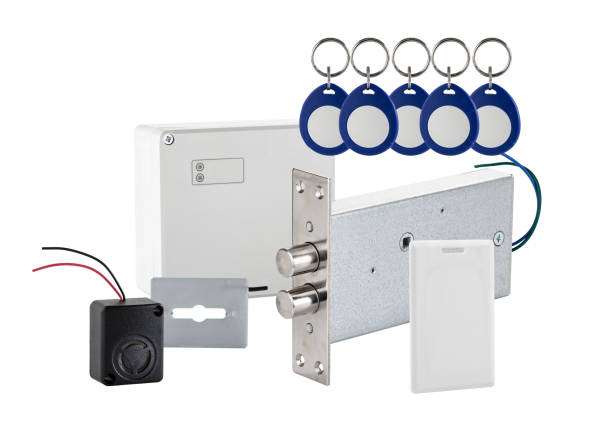
A basic RFID system is composed of tags, readers, and antennas.
- Tag: Each tag has a unique electronic code and consists of a coupling element and a chip.
- Reader: The reader is a device that reads (and sometimes writes) tag information and can be designed as handheld or fixed.
- Antenna: The antenna transmits radio frequency signals between the tag and the reader.
System Function Introduction
1. With access control, security, theft prevention, alarm, and other functions.
RFID access control system has anti-tailgating functionality, which can quickly identify unauthorized access, and issue audio-visual alarms in the control center.
2. Convenient access for internal employees and residents and facilitates internal management.
RFID access control system has no required card insertion, achieving true fast passage. Furthermore, RFID cards are safe, reliable, and have a long service life. And the contactless card reading method can reduce the risk of mechanical wear of the card to zero.
3. Enhance the level of management.
With the RFID access control system, the management personnel can check the access situation of the building through a computer without needing to stay on the scene. And they can browse/view/check/download/print the access record from the system.
The working principle of the RFID Lock System
The working principle of an RFID lock system involves using radio waves to communicate between an RFID reader and an RFID tag, which is attached to an object such as a door or a key card.
The RFID reader emits a radio frequency signal that is picked up by the RFID tag, which is programmed with a unique code. When the tag receives the signal, it sends its code back to the reader, which verifies the code and grants access to the locked area or device.

RFID lock systems are widely used in the hotel industry as they offer a more secure and convenient method of access control compared to traditional keys. Here are some of the ways in which RFID hotel door lock systems are used in hotels:
Guest room access: RFID tags, such as Keycards or wristbands, are used to grant guests access to their rooms. The RFID reader on the door of the room communicates with the tag to verify the guest’s identity and grant access.
Staff access: RFID tags can also be used to control access for hotel staff, such as housekeeping and maintenance personnel. Staff members are given RFID tags that allow them access to designated areas, such as storage rooms, laundry facilities, and maintenance rooms.
Energy efficiency: Some RFID hotel key card lock systems can be integrated with the hotel’s energy management system, allowing for more efficient use of energy. For example, when a guest leaves their room and takes off their room card on the RFID power switch, the system will automatically turn off the electricity in their room.
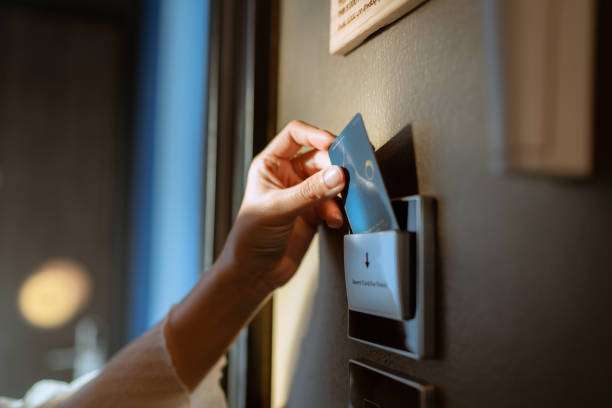
Asset protection: RFID tags can be used to track and protect valuable assets within the hotel, such as expensive artwork or electronic equipment. The tags can be attached to the items, and the RFID system can monitor their location and movement.
Assessing the Security of RFID Locks
RFID locks are convenient and easy to use, so they have become popular in many industries, including the hotel industry. However, are RFID locks secure? Like most locks, it can be opened with a solid tool and violent force. But it is worth noting that RFID locks are relatively excellent in terms of security, not only in the key but also in the lock body.
Compared with traditional locks, RFID locks use programmable key cards, which can effectively limit unauthorized access. The key card permissions can also be remotely changed through the system, eliminating concerns about lost room keys or copying issues.
In addition, in terms of the lock body, the manufacturing materials of RFID locks are relatively more diverse. As long as you choose the right smart card lock manufacturer, the quality and security of the lock will not be compromised.
However, RFID technology has both benefits and risks. Because RFID key cards contain electronic chips that can be copied or manipulated, there is a risk of being hacked or cloned. To mitigate this risk, some RFID lock systems use more advanced technologies, such as encrypted permissions and biometric authentication, to further enhance security. For more information on key card hackers, please refer to this article:The Dark Side of Hotel Secure: The Rise of Hotel Key Card Hack
Types of RFID lock systems
There is a wide variety of RFID lock systems available on the market, which are mainly differentiated by the frequency at which they operate. The type of frequency used by an RFID lock system can affect the range and accuracy of communication between the RFID reader and RFID tags.
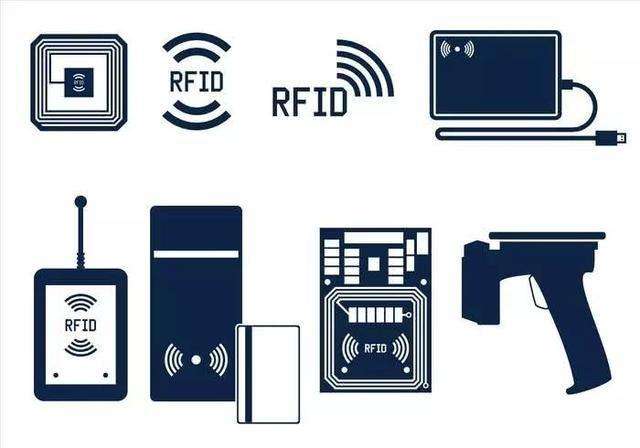
The three main types of RFID systems based on frequency are:
Low-frequency (LF) RFID: LF RFID systems use frequencies in the range of 125-134 kHz. These systems have a shorter range of communication and are typically used for applications that require close proximity, such as access control to a building or a room.
High-frequency (HF) RFID: HF RFID systems use frequencies in the range of 13.56 MHz. These systems have a longer range of communication than LF RFID systems and are often used for applications such as inventory management or contactless payment systems.
Ultra-high frequency (UHF) RFID: UHF RFID systems use frequencies in the range of 860-960 MHz. These systems have the longest range of communication and can be used for applications such as tracking vehicles or shipping containers.
Benefits of RFID Lock System
Compared to traditional lock systems such as physical keys or magnetic stripe cards, RFID lock systems have many advantages. Here are some of the main advantages of RFID lock systems:
Fast identification speed: As soon as the RFID tag enters the effective recognition range of the reader, the data is read immediately. In general, identification can be completed in 1-2 milliseconds.
High-security: RFID tags can be attached to any product and the tag data can be encrypted with a password to improve security. Even if a key card is lost, the system can easily cancel the lost card’s access permission and make a new card.
High efficiency: Within the effective recognition range of the reader, the RFID reader can read thousands of information per second and can simultaneously read multiple RFID tags.
Access control technology: RFID lock systems can be easily programmed to grant or deny access to specific individuals or groups of individuals. This makes it easier to control access to sensitive areas of your home or hotel, which can add peace of mind for you.
Strong anti-interference capability: One of the most important advantages of RFID lock systems is contactless access. It can work in harsh environments and has strong penetration, allowing it to quickly identify and read tags.
Large data capacity: RFID cards allow for more than 100,000 reads and writes, which is much higher than the capacity of QR access codes and barcodes. The data inside the card can be saved for more than ten years.
Long-service life: RFID lock systems are more durable than traditional lock systems. Because of their strong anti-interference capability, RFID tags are not easily damaged and have a longer service life.
Potential downsides of RFID lock system
While RFID lock systems offer several benefits, there are also potential downsides to consider:
Cost: RFID lock systems can be more expensive to install and maintain than traditional lock systems, which may not be feasible for some organizations.
Technical issues: RFID lock systems can be vulnerable to technical issues such as signal interference or power outages, which can disrupt their functionality.
Security vulnerabilities: While RFID lock systems are generally considered more secure than traditional lock systems, they can still be vulnerable to hacking or cloning if not properly secured.
Maintenance and upkeep: RFID lock systems require regular maintenance and upkeep to ensure they are functioning properly. This can include updating firmware, replacing batteries in RFID tags, and repairing or replacing hardware as needed.
Compatibility: Some RFID lock systems may not be compatible with existing infrastructure or software, requiring additional investments in upgrades or replacements.
Applications of RFID Lock System
RFID (radio frequency identification) access control has been widely used in our daily lives, and distributed across various industries. Here are some examples that we commonly see:
Residential and commercial properties
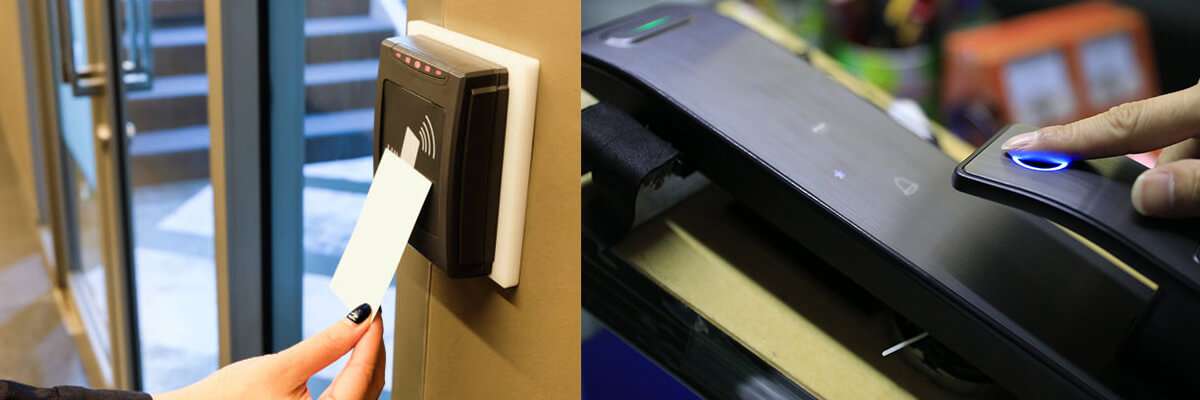
RFID technology makes access more convenient and secure. With the popularity of commercial and residential properties, RFID card access control is widely used.
For property owners, RFID systems can help them implement efficient and fast personnel management. Using RFID electronic tags can effectively identify people’s identities, perform security management and access restrictions, and improve the security of residential areas.
For individuals, RFID lock systems can be used to control access to the front door, garage, or other parts of the house. Homeowners can issue RFID cards or tags to family members, friends, or service providers (such as cleaners or maintenance workers) so that they can enter the house without physical keys. Some RFID lock systems also allow homeowners to set temporary access codes and cancel the access permission as needed.
Hotels and tourism industry

RFID lock systems are widely used in the hotel industry to control access to the hotel or resort, including guest rooms, employee areas, and other secure areas.
In hotels, RFID hotel key card locks can be integrated with the Property Management System (PMS) to enable keyless entry and provide real-time information about room occupancy rates, room service status, and other guest-related information. Hotel staff can issue RFID key cards or wristbands to guests, which can be programmed to allow access to specific areas of the hotel and record the time, date, and location of each entry and exit.
Overall, the benefits of RFID lock systems in the hotel and tourism industry include improved security, convenience, and guest experience.
Educational institutions

In the school environment, RFID lock systems can be used to control access to classrooms, student dormitories, libraries, and other areas of the school.
Authorized users such as teachers, students, and staff will receive RFID tags or cards, enabling them to access specific areas of the school. The system can also be programmed to grant temporary access to visitors or contractors and revoke access privileges as needed.
Modern RFID lock systems are also combined with high-tech industries to provide more secure and convenient unlocking methods, such as facial recognition, fingerprint unlocking, and mobile phone unlocking. RFID key card lock systems eliminate the need for physical keys that may be lost or stolen and make it easier to manage multiple user access. They can also be integrated with other security systems such as video surveillance, intercom systems, and emergency response systems, further enhancing the security of schools.
Warehousing, transportation, and logistics
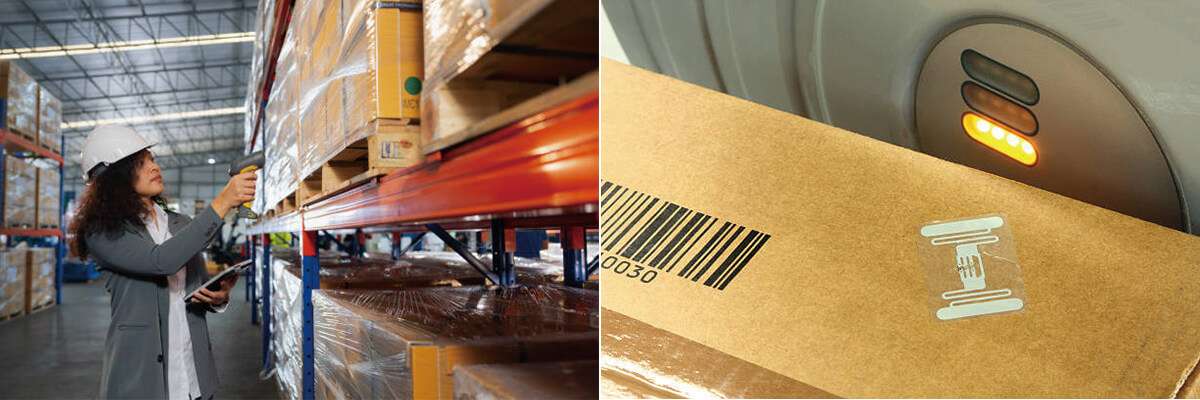
RFID lock systems are also widely used in warehouses and transportation as a way to improve security, efficiency, and inventory management.
By embedding RFID chips in products stored in warehouses, shopping malls, and logistics processes, the relevant information about the products can be automatically collected by the reader. Management personnel can then quickly query the product information in the system, reducing the risk of loss or theft, improving the speed and accuracy of product handover, and preventing counterfeiting and tampering.
It’s time to upgrade your RFID door lock system!
Are you tired of outdated door lock systems that can only be locked and unlocked with a physical key? YGS can help you upgrade your old lock system to a flexible cloud-based solution, offering encrypted RFID and mobile credentials, as well as high-tech smart card readers, making your door lock more than just a simple lock.
YGS door locks system has strong compatibility, allowing you to fully control your electronic door locks remotely and manage multiple devices on one platform. Additionally, YGS provides complete drawing instructions, clear video introductions, and professional service team guidance to make your RFID card door lock system installation easier than ever before. Contact us now to learn more about our RFID access control solutions and upgrade your security today!
Related Blog
With more than 20 years of smart lock experience, YGS could provide a set of hotel door lock management solutions for your hotel business.
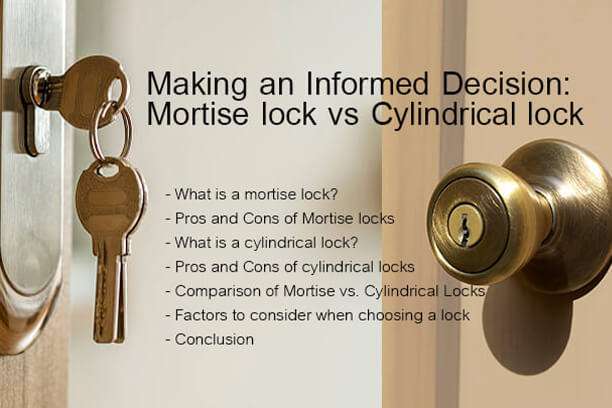
When it comes to choosing a lock for your home or business, there are a lot of factors to consider. Two common types of locks that are often compared are mortise locks and cylindrical locks. While both offer a degree of security, they have significant differences in…
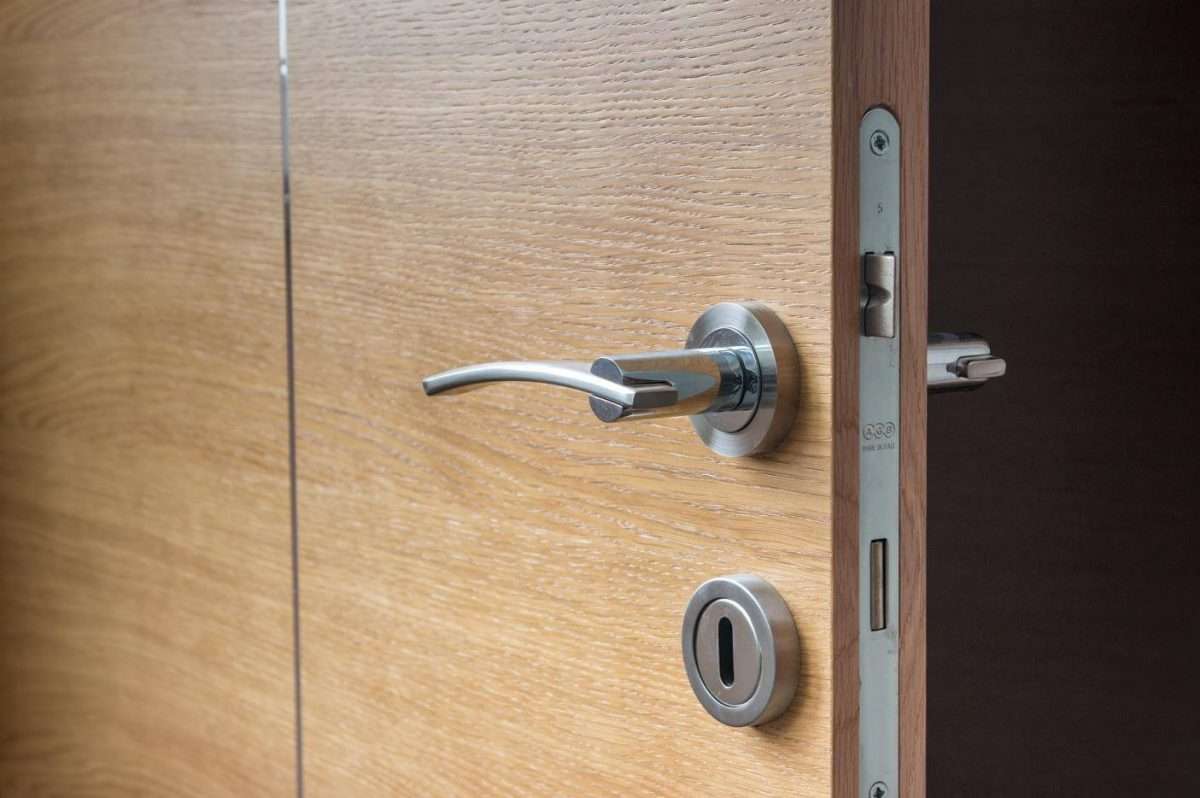
Various types and styles of electronic locks have been developed over the years, and they are widely used in hotels, apartments, schools, office buildings, and other settings. Among them, the hotel is the first place to use electronic locks. The latest technology is…

The hotel industry is dynamic and competitive, with businesses constantly seeking ways to improve efficiency and enhance guest satisfaction. Hotel management software features have become an essential tool in achieving…

With the help of advances in technology, hackers can use an invalid room card to create a “master key” that can open the entire hotel building. As soon as the news came out, everyone was shocked. Many hotels have moved to higher security…
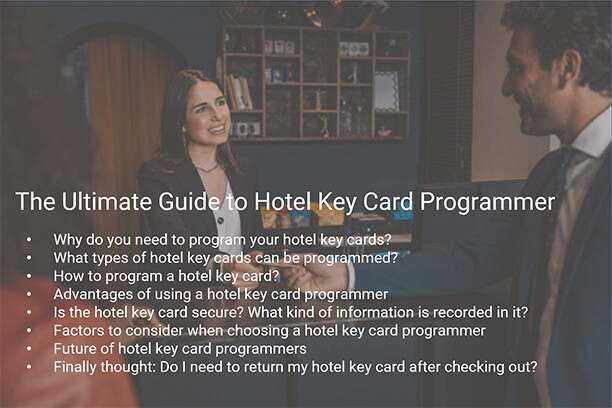
If you are running a hotel, maybe you want to know everything about the hotel key card programmer. Here, we will explore the ins and outs of hotel key card programming and provide you with the information you need to understand…

Hotel maintenance is a very important topic for discussion in the hospitality industry. Hotel maintenance not only affects the entire environment of the hotel but also affects the check-in experience for the guests. Therefore, the hotel should…

